-
PROJECT
13
(Sep.
2014 - Present)
Title:
Multi-Agent Social
Learning for Market Prediction
Support by: University of Wollongong
Duty: This is a PhD project and I co-supervise the
PhD candidate (Mr. Xishun Wang) with Prof. Minjie
Zhang. In a large complex Smart Grid market, usually
brokers are introduced for power trading. We design
an intelligent broker agent—GongBroker, basing on
the platform of Power TAC, which simulates a real
world Smart Grid market. GongBroker buys energy from
the wholesale market through auctions, and sells
energy to various consumers in retail market. In our
design, we deeply explore the customer consumption
behaviors with a data-driven method. All the
consumers are clustered according to their
historical energy consumptions, and one-day-ahead
hourly usage of each consumer cluster is predicted
by Logistic regression. Basing on the predicted
usages, the auction module employs an MDP process
for one-day-ahead auction. To compete with other
trading agents, GongBroker uses independent
reinforcement learning processes to generate
different tariffs for different types of consumers.

-
PROJECT
12
(Sep.
2014 - Present)
Title:
Adaptive Resource
Allocation Strategies for Emergency Management
Support by: University of Wollongong
Duty: This is a PhD project and I co-supervise the
PhD candidate (Mr. Jihang Zhang) with Prof. Minjie
Zhang. In emergency management, one of the most
important phase is to allocate human resource or
materials to mitigate the damage caused by the
events. For small-scale emergency events, public
emergency services like police force, are department
and ambulances can be used to control the damage.
But for larger-scale emergency events, the damage
control is obviously beyond the capability of these
public emergency services. For examples, after a
strong earthquake that happened in highly inhabited
areas, thousands of people could be killed or
affected. Under such situation, the search and
rescue in the first few days is extremely important
for victims, and it is obvious that separated public
emergency services or departments cannot make
efficient response if there is no applicable
strategies to allocate or coordinate them. One
promising way to make fast and effective resource
allocation for large-scale emergency events is to
use computer science and information technology.

-
PROJECT
11
(Jan
2015 - Dec. 2015)
Title: Strengthening Research and Education
Collaboration with Dalian University of Technology
(DUT) in China
Support by: University of Wollongong ($7,500)
Duty: I am the chief investigator of this project.
The aims of this project are (1) to strengthen and
broaden current research collaboration between two
research teams; (2) to build a long-term partnership
between the two institutions by discovering
potential opportunities for developing collaborative
teaching programs in computer science in both
undergraduate and postgraduate levels; (3) to
initiate a research training program in a
postgraduate level by exchanging visiting research
students around the topics of agent-based
coordination, learning, negotiation and
self-organization; (4) to lead to future joint
applications for competitive grants in both
countries; and (5) to develop effective mechanisms
that will enable autonomous agents to achieve smart
management of vehicular networks and Internet of
Things (IoT) in open domains through the research
collaboration between the Intelligent Systems
Research Centre (ISR) at UOW and the Key Research
Centre of Internet of Things and Collaborative
Sensing (ITCS) at DUT.
-
PROJECT
10
(Jan
2014 - Dec. 2016)
Title: An Adaptive and Intelligent SLA Negotiation
System for Web-Based Service-Oriented Grid Computing
Support by: ARC DECRA ($391,947), University of Wollongong
($184,000)
Duty: I am the chief investigator of this project.
Mr. Lei Niu is a PhD candidate (co-supervised with
Prof. Minjie Zhang) of this project. This project
will develop an intelligent negotiation system for
Service Level Agreement (SLA) in web-based
service-oriented grid computing. The specific aims
include (1) computational models for SLA negotiation
representation; (2) intelligent managements of SLA
negotiation procedures; and (3) adaptive learning
for SLA negotiation system improvement. The
significance of this project lies in its promises to
realize the automation of SLA negotiation through
using intelligent and computational models, so as to
greatly improve the efficiency of web-based service
systems. The research results will enable software
engineers to develop more robust and intelligent
service-oriented systems through web-based
computational grids.

-
PROJECT
9
(July
2012 - Dec. 2014)
Title: A Multi-Agent Solution for Smart Grid System Modelling, Simulation, and Management by Considering Distributed and Renewable Energy Resources and Local Power Storages
Support by: University of Wollongong
Duty: I am the main researcher of this project. The objective of this project is to propose a multi-agent system to model, simulate and manage a Smart Grid (SG) system under different
circumstances in automatic and efficient ways. Power management strategies will be proposed to dynamically balance the power supply and demand in the SG system, and self-healing mechanisms will be generated to intelligently diagnose the faults and to automatically restore the system from outages. The
significance of this project lies in its promise to
develop a new infrastructure for intelligent
modelling, simulating and managing a SG system by
considering reliability, efficiency, environmental and economy issues.
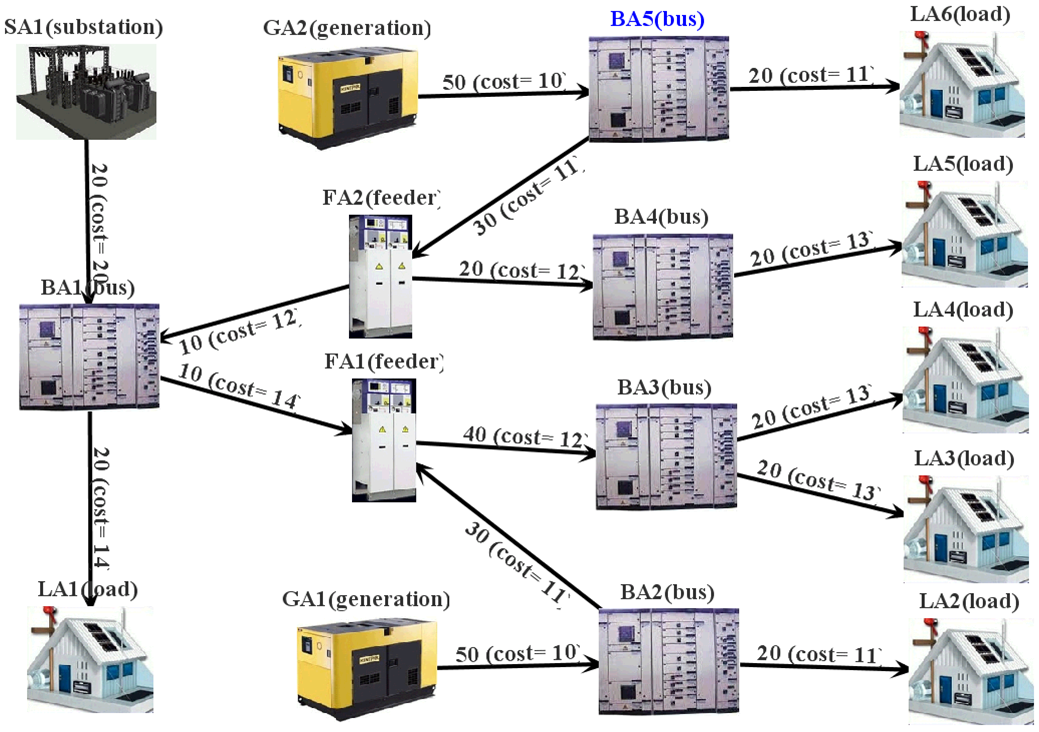
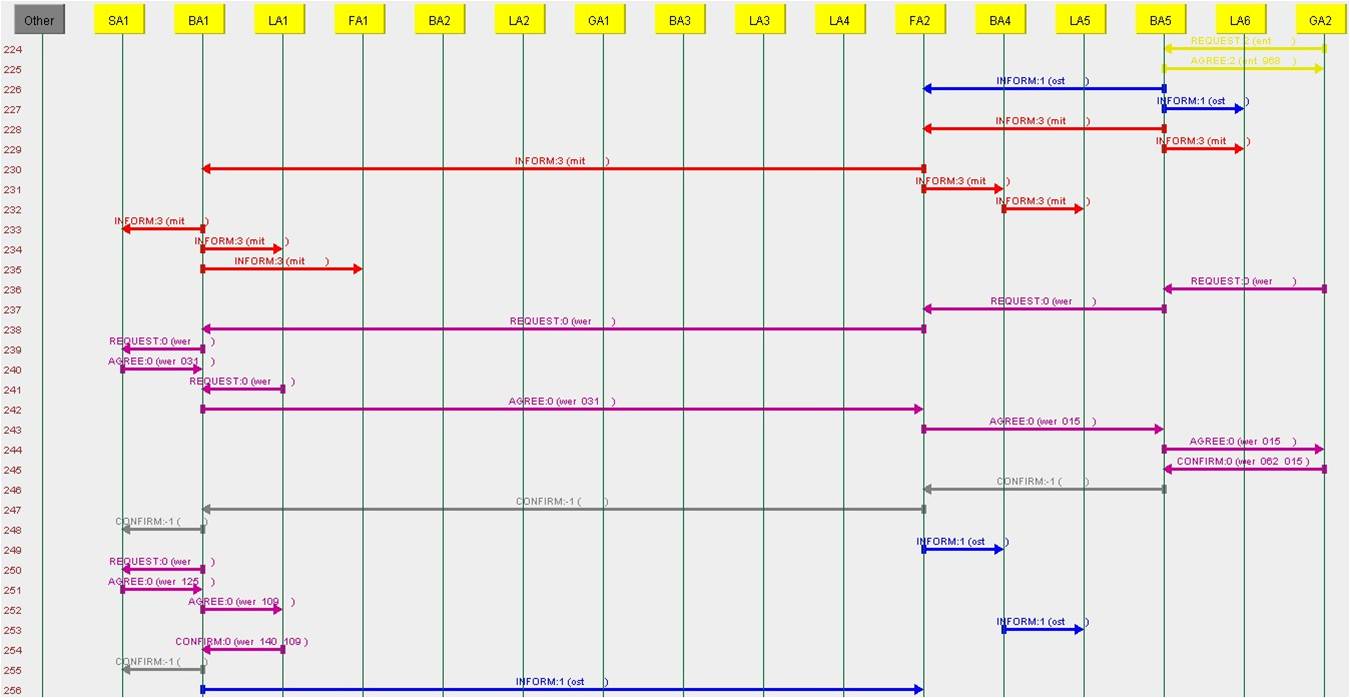
-
PROJECT
8 (July 2010
- June 2012)
Title:
Emergency Control of Catastrophic Disturbances in a
Power System
Support by: Australia Research Council and TransGrid
Company
Duty: I was the main researcher of this
project. In this project, local intelligence in
distributed monitoring systems was used to deal with
the uncertainty posed by unforeseeable extreme
contingencies in power systems due to potential
disasters such as those caused by terrorist attacks.
Pattern recognition of parameter changes was used to
identify the causes of a breakdown and to identify
the most affected localities. Once identified, designs based on systems of intelligent agents in a multi-agent system, were used to model the distributed control system, and to provide intelligent computation decisions and asynchronous strategies to activate the necessary countermeasures.
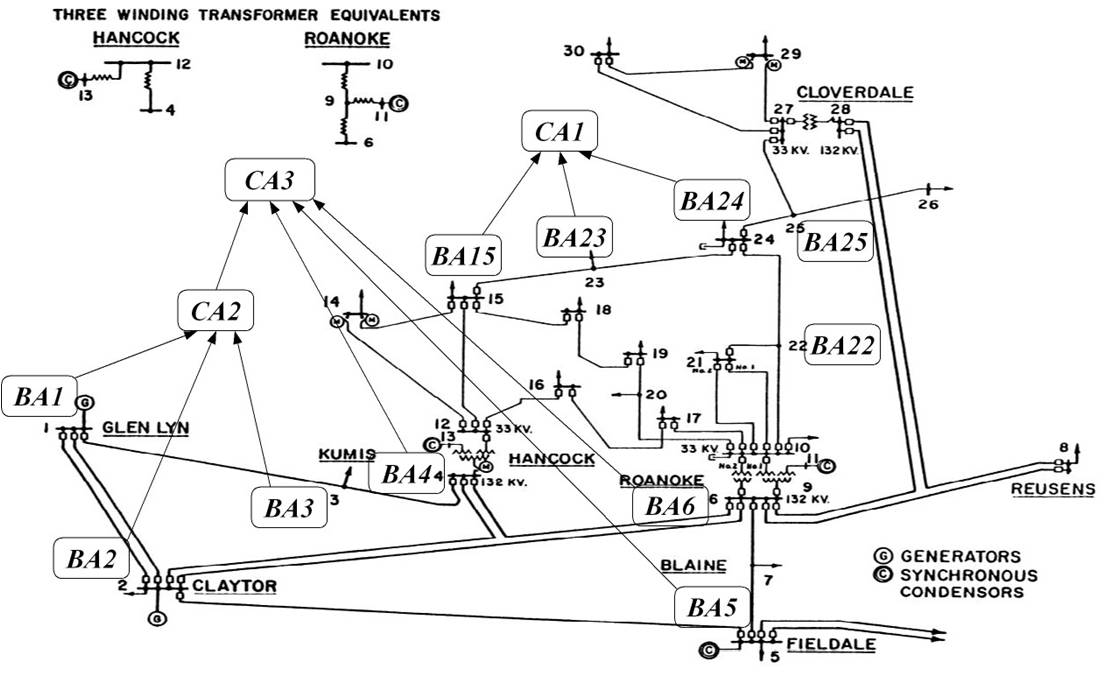
-
PROJECT
7 (January 2010 - June 2010)
Title: Data Analysis and
Mining in the Presence of Noise
Support by: Australian Government Attorney-General’s Department
Duty: I was the main researcher of this project. I was responsible for investigating technologies and tools from existing data mining approaches, and extending these existing technologies and tools to handle raw and/or noisy data without a pre-processing, i.e. data clean, data normalization, and etc.

-
PROJECT
6 (January 2009 - December 2009)
Title:
Agent-Based Simulation and Pattern Analysis from
Transactional Data
Support by: Australian Government Attorney-General’s Department
Duty: I was one of the researchers in this project. I was responsible for planning theoretical research and practical work. Our research group had designed and implemented an agent-based system for simulating and analysing transactional data. The system combined data mining, social network analysis and agent techniques together, and provided knowledge mining, pattern discovery and decision supporting services to users.


-
PROJECT 5 (July 2006
- June 2010)
Title: Autonomous Agent
Negotiation Strategies in Complex Environments
Support by: University of Wollongong
Duty: This was my PhD project. In this project, I deeply investigated agent negotiation problems in complex environment and proposed six negotiation approaches to solve negotiation problems in different environments, such as regression-based agent behaviour prediction, linear and nonlinear based partner selection, market-based model for both single and multi-issue negotiation, multiple related negotiation network for concurrent negotiation. Nineteen research papers, including
five book chapters and six journal papers, were published to demonstrate the research outcomes of my PhD study (see my publication list).

-
PROJECT
4 (May 2007
- November 2007)
Title:
Multi-Agent Trading Environment Supporting E-Trading in an Open Market
Support by: University of Wollongong
Duty: This was a undergraduate student
final project, and finished by a group of four students. I was the advisor of the project. As an advisor, I needed to give advises to students in aspects of system design, system implementation, and system evaluation. Also, I needed to check progress reports and development documents, and gave feedbacks to students. The grade of this project was Distinction.
-
PROJECT
3 (February 2004
- June 2006)
Title:
Multi-Image Query Content-Based Image Retrieval
Developing
Support by: University of Wollongong
Duty: This was my research master project. In this project, I studied content-based image retrieval approaches, and MPEG-7 descriptors. I proposed two weighting approach to adjust both the intra weight (weighting different features in a descriptor) and inter weight (weighting different descriptors) by employing a multi-image query strategy.

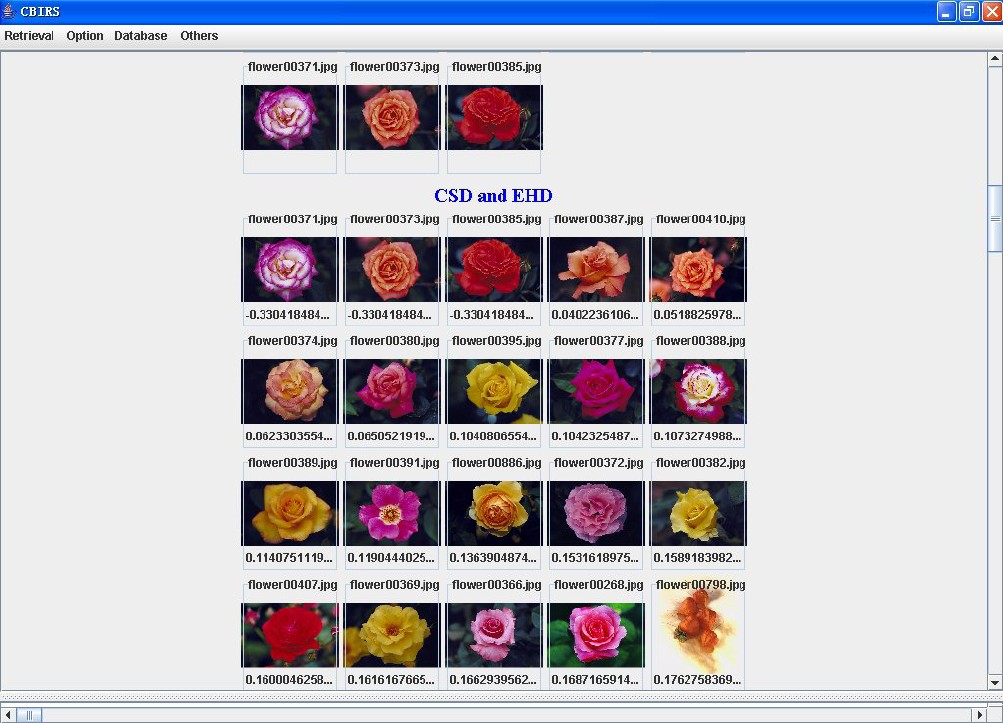
-
PROJECT
2 (February 2005
- May 2005)
Title:
Impressio
-An Online Content-Based Image Retrieval System
Support by: University of Wollongong
Duty: I was the main researcher of this project. Impressio was an online content-based image retrieval system. By employing the text-based image retrieval results from Google, Impressio can refine the retrieval results by considering the visual features of images. Impressio
was in the finalist of first Trailblazer in the University of Wollongong.
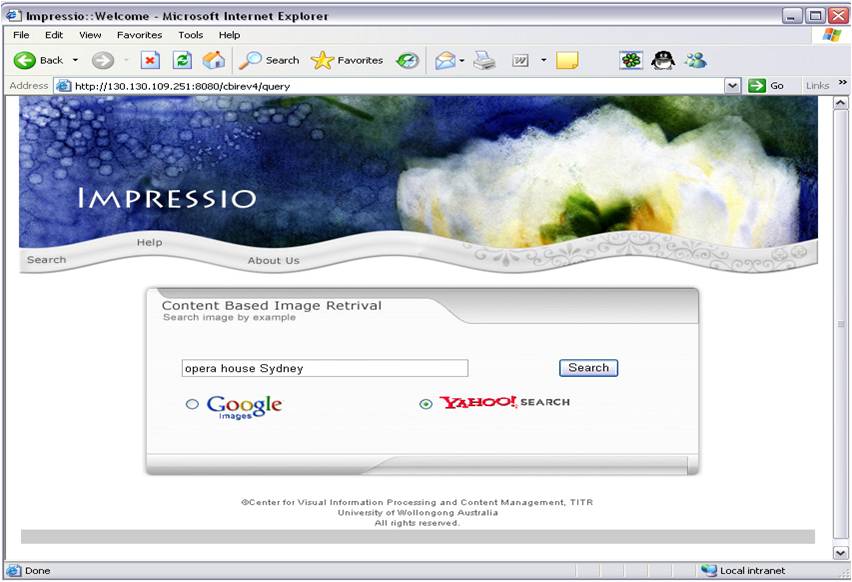
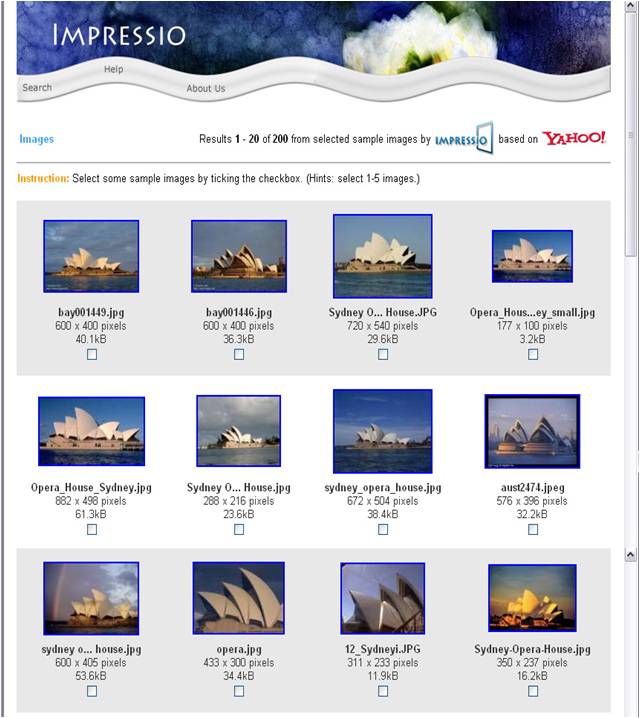
-
PROJECT
1 (June 2002 - June 2003)
Title:
Database Design and Access
Support by: XiDian University
Duty: This was my graduate project, and completed by myself. My role in this project was to design and implement the system which had the ability to set up, access and modify the database under different standard such as, DB2, Informix, Oracle, etc. The system was built up under the Microsoft Windows XP operating system with C++ Builder. The grade of this project was Distinction.
|